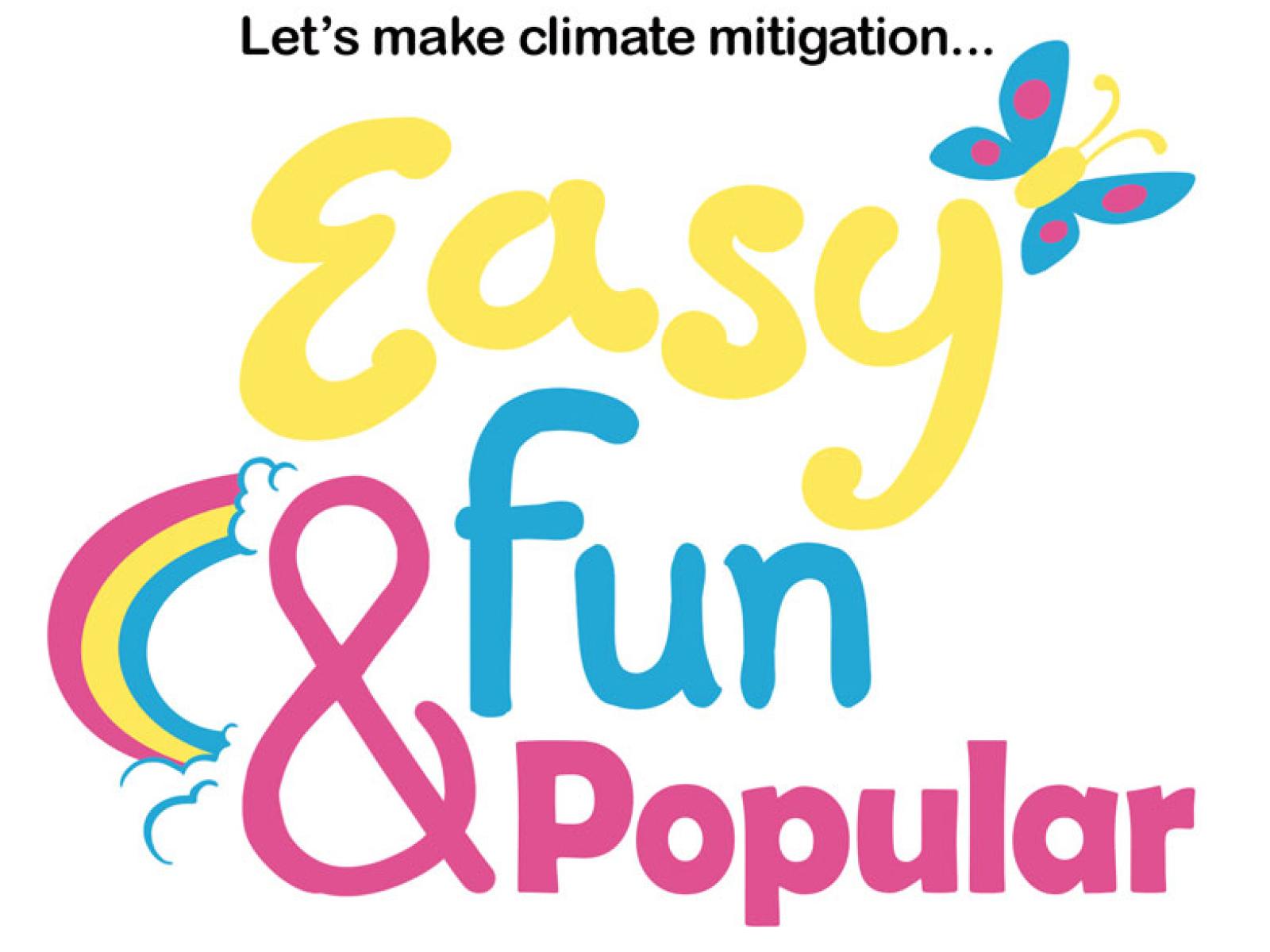An Overview Of Our Solution
For effective climate communication we need to create simple, clear messages, repeated often, by a variety of trusted sources and to make the promoted behaviors easy, fun, and popular (Maibach, in press). Currently, climate change messaging is framed as scary and huge. Though people want to help, they are overwhelmed. Also, many of them are unclear about how specifically to take actions that we are asking. We propose unified messaging via a single unified web platform as a low-cost effective solution- a shared trusted resource to gather people, strategies and ideas searchable by topic and browsable by region. This website will be integrated into an entertainment-education approach that will encourage self-efficacy and social modeling for behavior change. It will give us a "unified" home for climate communication solutions.
- Population Impacted: Current US pop.(325.7M) - potential global reach
- Continent: North America
Last name
Organization type
Context Analysis
The psychological context for the relative lack of urgent action to mitigate climate change is crucial to understand. Bandura’s self-efficacy theory proposes that if people don’t believe our individual or collective efforts will make much difference in solving challenges like climate change, we avoid trying and instead retreat into hopelessness, despair, or cynicism. Shepherd and Kay’s theory of motivated avoidance explains how being overwhelmed by complicated issues fosters a dependence on our government and trust that it will solve problems for us. We are actively motivated to avoid unpleasant or threatening information about climate change. This reinforces a “climate spiral of silence”-- the less often we discuss climate change, the less likely even those of us who care about it will bring it up.
Describe the technical solution you wanted the target audience to adopt
Telling solutions stories, and creating a "unified" solutions website hub. Currently, the public is overwhelmed by the vast number of suggestions from different resources. As Maibach describes (in press), complex information is cognitively taxing, and most people, in most situations, won’t make the effort. Instead, they use mental shortcuts, often reaching conclusions that differ from those intended by those providing the information (Kahneman, 2011). Unified messaging will help the public simplify appropriately and adopt wise actions. The solutions will be specific do-able actions, searchable by topic and browsable by region. Via integration into entertainment education, the behaviors will be modeled to increase self-efficacy.
Type of intervention
Describe your behavioral intervention
My behavioral intervention is to have people tell Solutions Stories. By improving people’s personal and collective efficacy for all of our climate solution behaviors, we will transform our culture. This includes all of the solutions: improved civic participation, a transition to renewable energy, waste reduction, sustainable local food systems, regenerative agriculture, and habitat preservation. I’m developing culturally reinforcing social mechanisms to improve the cultural adoption of sustainability behaviors. All of these joined together- this is the “one ring to bind to them all” solution.
As needed, please explain the type of intervention in more detail
The intervention of telling solutions stories itself costs nothing - it simply redirects current climate communication to motivate audience participation. Building a unified website collects existing projects and systemitzes them to make them easier to find. I believe that once we've done that, we will see how to start collaborating more effectively from all our various roles. Building cultural reinforcement of the intrinsic rewards will drive normalization of solutions behaviors.
Describe your implementation
Unified web site that brings together resources in an easy spot way that is positive, solution oriented. Specifically, will use the $25,000 to hire 3 personnel:
1. Web designer to design a unified interface
2. Web developer to implement it
3. An administrator to coordinate the collaboration of as many stakeholder participants as possible (NASA, DOE, Climate Central, etc)
External connections
Debra Safer MD (from Stanford University) and I have been collaborating on developing an unified entertainment-education platform for the last 6 months. I started planning the entertainment-education program in 2016. Bill Ryerson (from Population Media Center) is a key collaborator to the formation of the entertainment-education components. All of the Easy, Fun, Popular bits and the notion of Unified messaging reference back to Edward Maibach's paper (Maibach, in press). The Medical Consortium on Climate and Health describes the Why of this work. Max Boykoff has been a close collaborator for defining the comedy framing. Al Bandura has advised the intrinsic rewards systems and emphasized the importance on efficacy building.
Who adopted the desired behaviors and to what degree?
Entertainment-education has not yet been created with a comedic approach to improve efficacy for climate solutions with mainstream American audiences. However, many entertainment-education serial dramas have effectively for other public health interventions. We believe comedy will work as well or better in giving viewers the strategies to successfully modify sustainability behavior.
How did you impact natural resource use and greenhouse gas emissions?
We cannot measure at this time.
What were some of the resulting co-benefits?
All of the above, eventually. Immediate co-benefits of the program will be improved social collaboration, improved personal efficacy generally, improved community health and reduced air pollution.
Sustainability
Our solution does not rely on rely on grant funding, government subsidies or market-based revenue - which is the point. The entertainment content I strongly believe will be commercially viable for it's own entertainment value.
Return on investment
Cannot be calculated at this point of the project.
How could we successfully replicate this solution elsewhere?
This hasn’t been done yet. We are just developing pilot programs for it now. It will be easy to replicate and scale.
